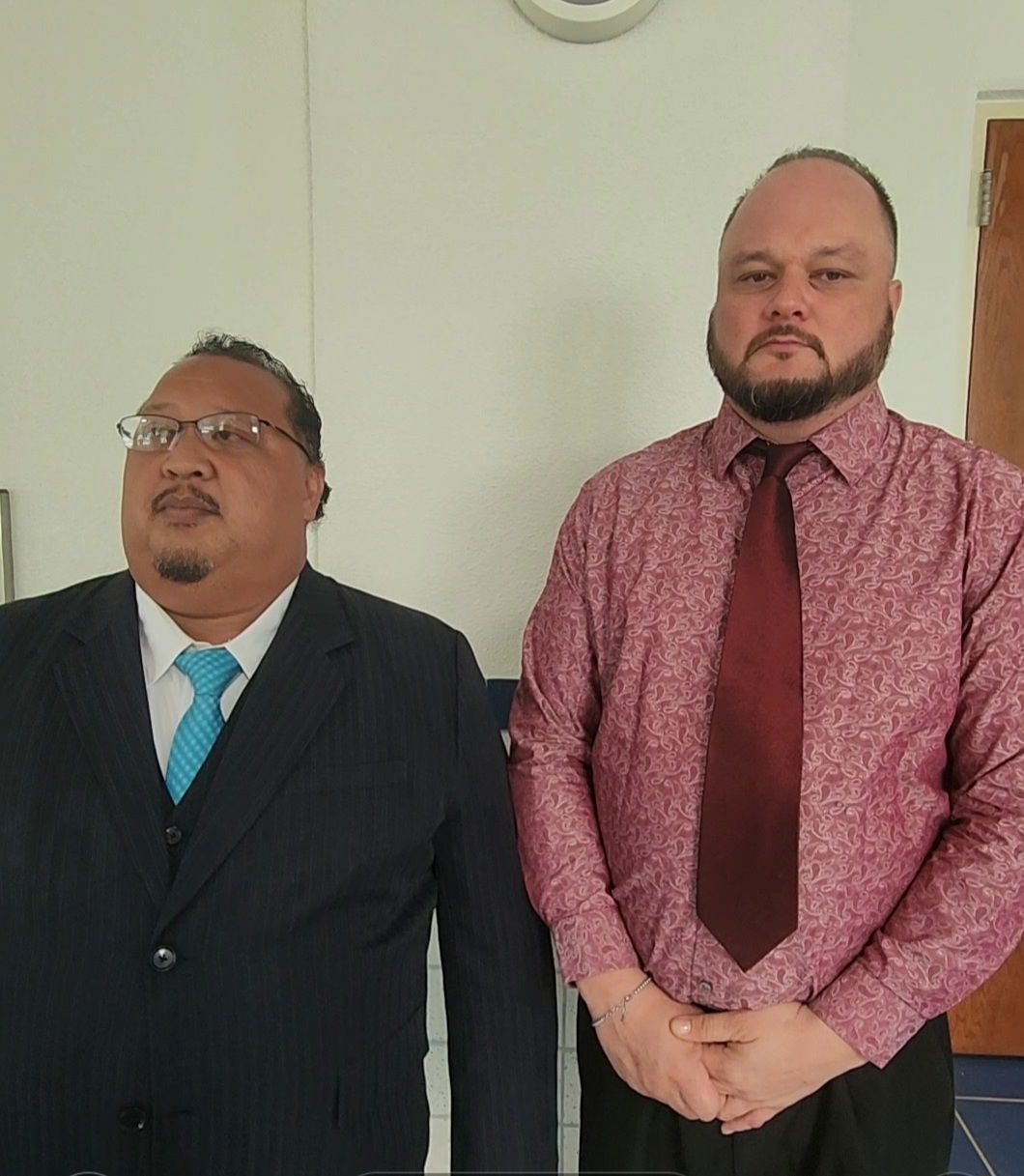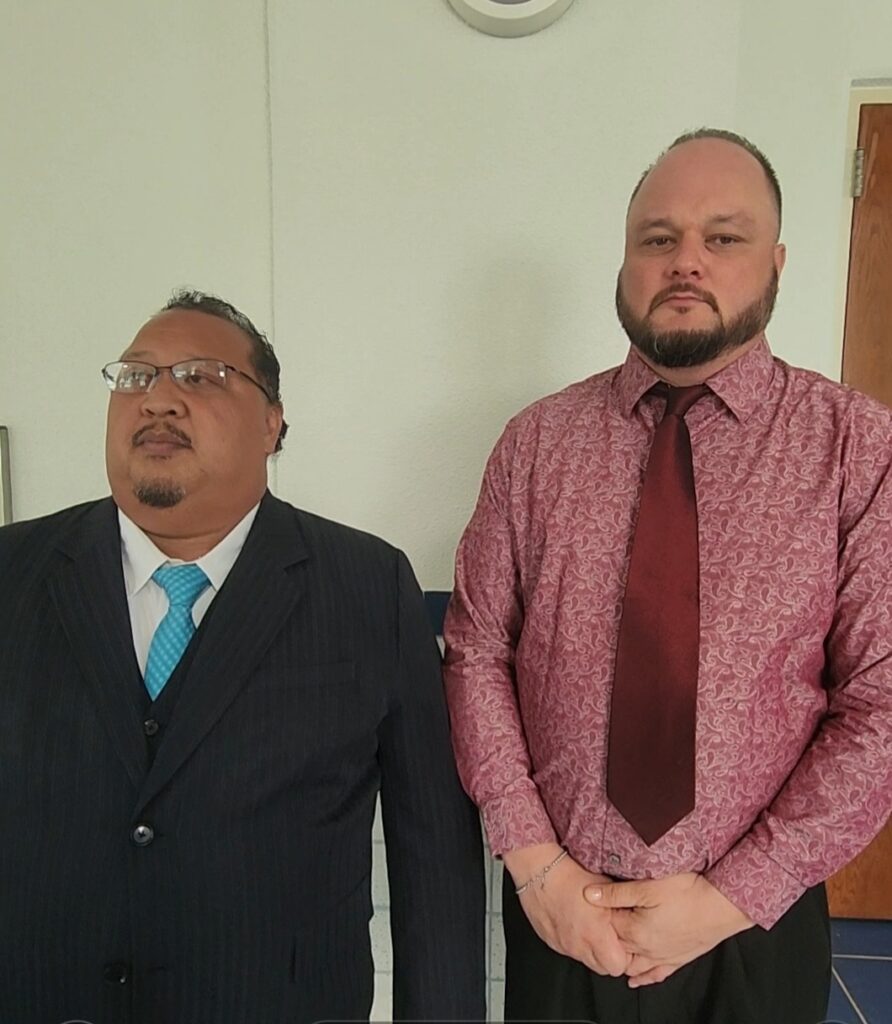
Attorney Joaquin DLG Torres, left, and his client, Shayne B. Villanueva, are interviewed by reporters following the court’s not-guilty verdict.
FOLLOWING Judge Joseph N. Camacho’s decision to award Conrad Muna Sablan, his mother, and his siblings $2.106 million in compensation for the unconstitutional taking of their property in Sadog Tasi, Maria Verna Liza Sablan has filed a motion to intervene in Superior Court.
Maria Sablan is Conrad Sablan’s ex-wife. Her motion to intervene noted that she also sued Conrad Sablan in federal court for unjust enrichment, conspiracy and conversion for not giving her share or profit from three corporations that they both own jointly. That lawsuit is still pending.
Maria Sablan, represented by attorney Joseph Horey, seeks the local court’s approval to intervene in the case because she has a claim in the property.
According to Horey, “The property that is the subject of this action is Tract No. 22654. Maria claims an interest relating to that property.”
“Specifically,” he added, “she claims that Tract No. 22654 constituted marital property to which she was entitled to an equitable share upon her divorce from Conrad [Sablan]. Since she did not receive such a share, and since the property was seized from Conrad [Sablan] by [the Commonwealth Utilities Corporation and the CNMI [government] in 1991, her inchoate interest in the property as Conrad’s spouse was also seized, and she is therefore entitled to an equitable share of the court’s judgment in favor of Conrad in this matter,” Horey said.
He added that no existing parties adequately represent his client’s interests.
“Conrad’s interest is naturally in retaining the entire amount of the judgment for himself, while [CUC and the CNMI government’s] interests are adverse to even Conrad’s claim, thus inherently to Maria’s as well, as her claim is derivative of his,” Horey added.
“Disposing of the action without Maria’s participation may impede her ability to protect her interest, since any judgment funds paid out without her participation would be paid directly to Conrad, who can then be expected to use them in various ways, making them more difficult for her to collect than they would be if she participated while the funds are still in [CUC and the CNMI government’s] hands,” Horey said.











